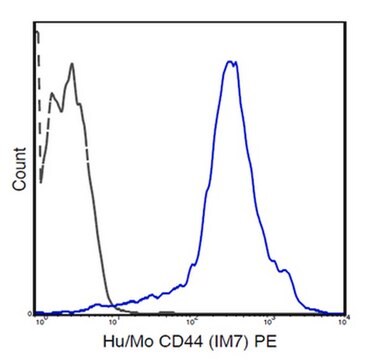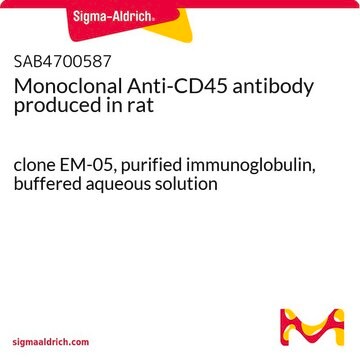MABF2117
Anti-insulin peptide–MHC Antibody, clone mAb287
clone mAb287, from mouse
About This Item
FACS
inhibition assay
flow cytometry: suitable
inhibition assay: suitable
Produits recommandés
Source biologique
mouse
Forme d'anticorps
purified antibody
Type de produit anticorps
primary antibodies
Clone
mAb287, monoclonal
Espèces réactives
mouse
Conditionnement
antibody small pack of 25 μg
Technique(s)
ELISA: suitable
flow cytometry: suitable
inhibition assay: suitable
Isotype
IgG1κ
Modification post-traductionnelle de la cible
unmodified
Informations sur le gène
mouse ... Ins1(16333)
Description générale
Spécificité
Immunogène
Application
ELISA Analysis: A representative lot detected insulin peptide MHC in ELISA applications (Zhang, L., et. al. (2014). Proc Natl Acad Sci USA. 111(7):2656-61).
Inhibition Analysis: A representative lot of this antibody inhibited in vitro responses of insulin-specific T-cell hybridomas/transfectomas. (Zhang, L., et. al. (2014). Proc Natl Acad Sci USA. 111(7):2656-61).
Signaling
Qualité
Forme physique
Stockage et stabilité
Autres remarques
Clause de non-responsabilité
Vous ne trouvez pas le bon produit ?
Essayez notre Outil de sélection de produits.
Certificats d'analyse (COA)
Recherchez un Certificats d'analyse (COA) en saisissant le numéro de lot du produit. Les numéros de lot figurent sur l'étiquette du produit après les mots "Lot" ou "Batch".
Déjà en possession de ce produit ?
Retrouvez la documentation relative aux produits que vous avez récemment achetés dans la Bibliothèque de documents.
Notre équipe de scientifiques dispose d'une expérience dans tous les secteurs de la recherche, notamment en sciences de la vie, science des matériaux, synthèse chimique, chromatographie, analyse et dans de nombreux autres domaines..
Contacter notre Service technique








